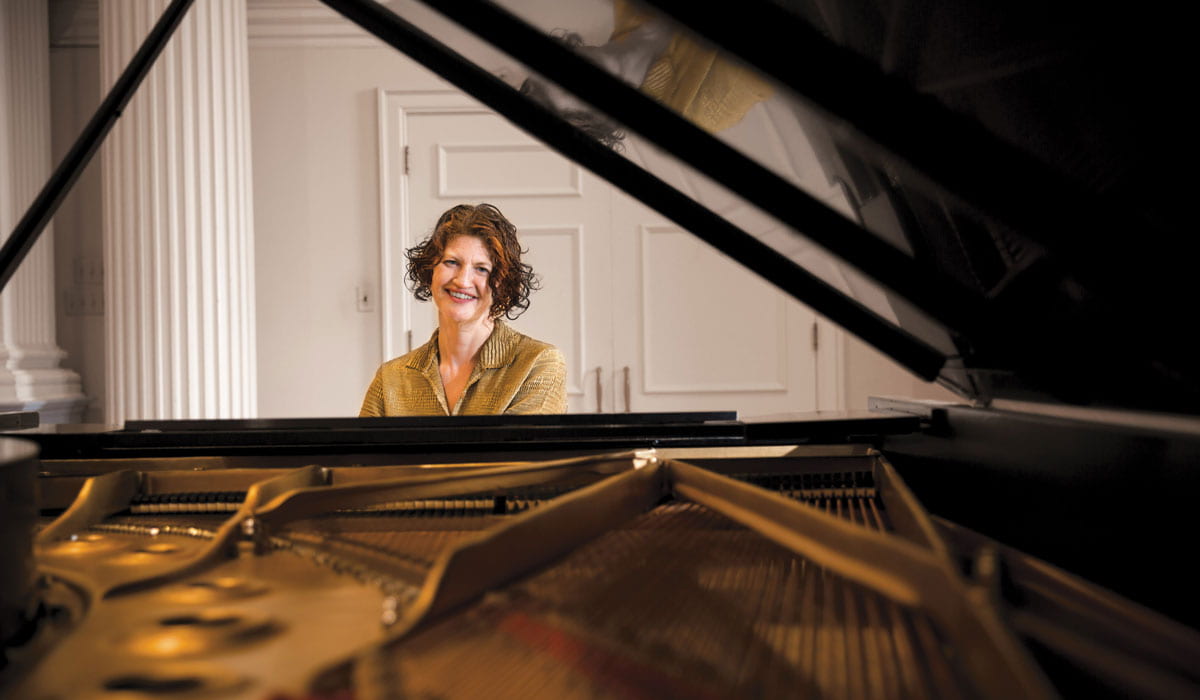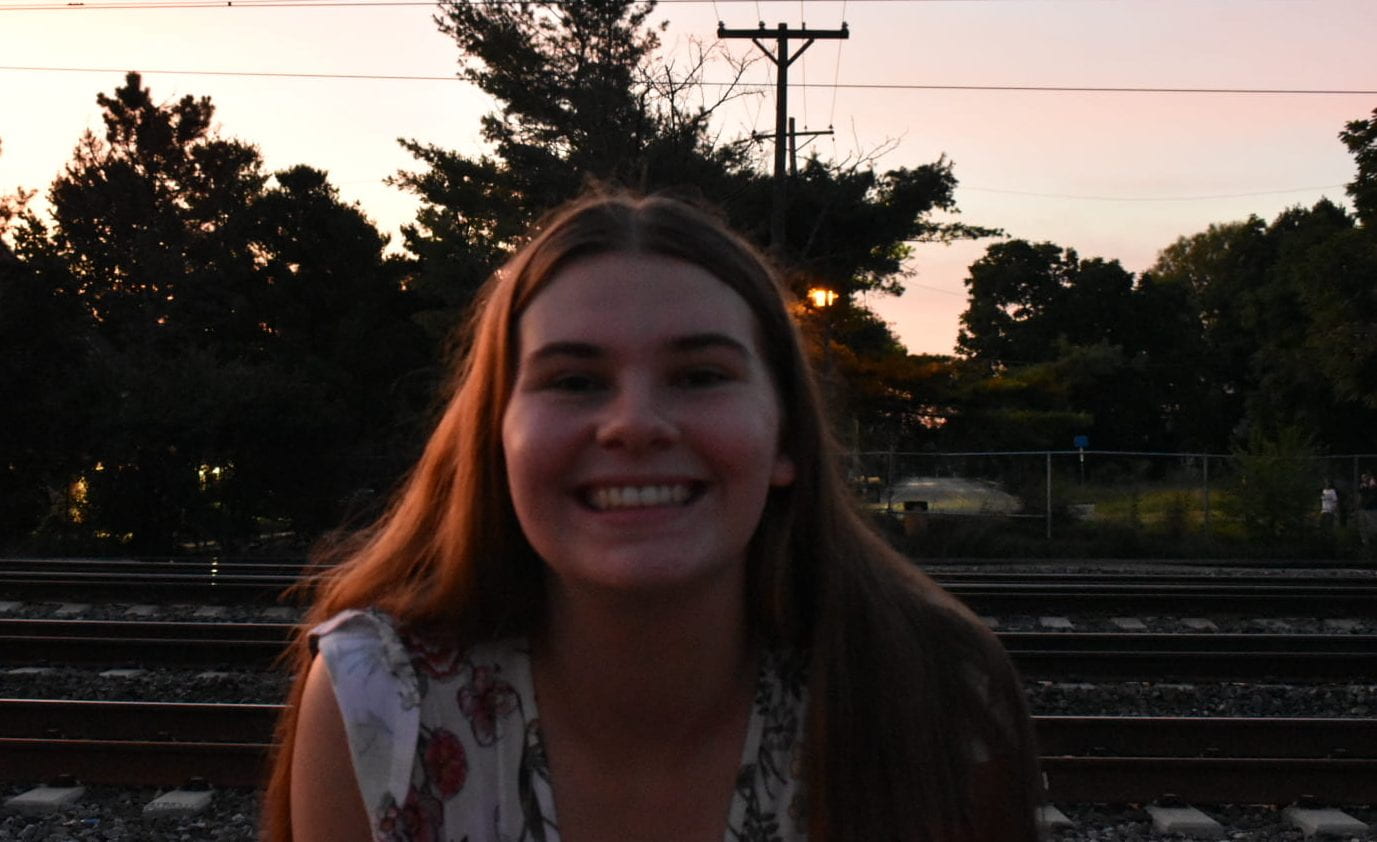By Megan Kelby, Blog Editor ~
Penn State’s School of Music Recital Hall stepped 200 years into the past with Jocelyn Swigger’s guest performance on Wednesday, February 22.
Swigger is a professor of piano and coordinator of keyboard studies for the Suderman Conservatory of Music at Gettysburg College. Outside of teaching, she records her pieces, hosts a podcast, performs around the world, and even spoke during a TEDTalk.
As a former band kid and an amateur self-taught pianist myself, classical music has been part of my life for many years, and I jumped at the opportunity to hear it performed live. Swigger’s performance seemed like the perfect event.
To add to my excitement of hearing my first performance in Recital Hall, Swigger had a program filled with compositions written by women.
Her decision to only choose music from female composers flooded the room with music by Sophie Westenholz, Celeste Heckscher, Agnes Tyrrell, Florence Price, and Grace Le Boy, none of which I recognized.
Because of the lack of notoriety female composers receive for their work, especially during the late 1800s when most of the chosen pieces were written, the compositions are mostly unknown to both musicians and the general public.
Swigger opened her recital by addressing the crowd. After thanking them for their attendance, she admitted that she too was unaware of the composers she would be playing up until a couple of years ago. I was curious to hear about these mysterious compositions overwritten by time, and I knew the audience must feel the same. Though Swigger would be performing the pieces, meaning she had heard them multiple times in the past, it was as if everyone was experiencing them for the first time.
The performance opened up with a bang from Sophie Westenholz’s “Sonatina in B flat Major, SW 1/2.” With staccato notes seemingly throughout the whole piece, the shorter composition introduced the audience to Swigger’s expert execution before flowing into Celeste Heckscher’s “Valse Boheme,” which held the same intensity, translating the passion from pieces to the audience, and giving me goosebumps.
One of Swigger’s most notable actions in her performances is her introductions to each piece and composer before she plays them. Though a program was available to audience members, she still took the time between almost every piece to stand and address the audience about what was to come.
The longest one of these descriptions came before the Czech artist Agnes Tyrrell, Swigger’s self-proclaimed “newest obsession.”
Taking up over half the program, Tyrrell’s pieces touched more on the ebbing and flowing of emotions than the others combined.

Jocelyn Swigger, pictured at the Suderman Conservatory of Music conservatory, became a concert pianist at 16.
Credit: Gettysburg College
It was at this point that Swigger asked for some audience interaction. Along with the program was a sheet with a list of Tyrrell’s pieces that would be performed, all of which had generic titles. After listening to the pieces, it was requested that audience members write down an alternative title to songs that had more creativity than their given ones.
Citing that Beethoven’s “Moonlight Sonata” was not called that until after a passionate listener suggested it, she hoped Tyrrell’s work could experience the same love.
Over the next hour, Swigger transported Recital Hall back to the 19th century through her performances of Tyrrell’s work, such as “Charakterstück No. 2 in F Minor: Schnell,” a raging upbeat number, and “Grand Sonata in F-sharp Minor, Op. 66,” a piece that emphasized the wavering emotions one experiences throughout their throughout life with “sighs” littered within each movement.
Though some might find it hard to believe, the piece was astonishingly overwhelming. Swigger’s animated shoulder movements sunk with the painful notes and shook with passion at the peaks. A well-deserved long applause met her at the final note.
Ending the night on an upbeat note, Swigger performed two American Dances: Florence Price’s “Silk Hat and Walking Cane” and Grace Le Boy’s “Pass the Pickles,” both of which dip into the early 20th century.
Though those in the audience got to experience the under-appreciated work of these female composers, because of their lack of appreciation, a majority of those pieces have never been recorded. Swigger hopes to record them all within the next few years, but until then, only those committed to learning the works or willing to do a deep dive to find recorded versions will have the luxury of hearing the works.
 Megan Kelby is the blog editor, member of the nonfiction committee, and member of the proofreading/editing committee for KLIO 2023. She is a third-year majoring in print/digital journalism with minors in history and English and is a writer for both CommRadio and Onward State.
Megan Kelby is the blog editor, member of the nonfiction committee, and member of the proofreading/editing committee for KLIO 2023. She is a third-year majoring in print/digital journalism with minors in history and English and is a writer for both CommRadio and Onward State.